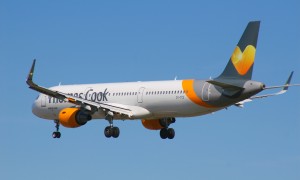欧洲面临严重恐怖威胁 情报共享是关键

With Europe facing a fresh terror threat after three bomb blasts killed at least 34 people and injured about 270 in the Belgian capital on Tuesday, analysts agreed that sharing intelligence was at the heart of combating extremist groups such as Islamic State, which claimed responsibility for the Brussels attacks.
Anthony Glees, a professor at the University of Buckingham in London and director of its Centre for Security and Intelligence Studies, told China Daily that Belgium's divided society made it easy for terror groups to slip into that country unnoticed.
He said the Brussels attacks on the main airport and a rush-hour subway train came as no surprise, given last week's arrest in Brussels of Salah Abdeslam, a key suspect in the November terror attacks in Paris that killed 130 people.
Security analysts said the perpetrators of the Paris attacks were traced back to Molenbeek, an area of Brussels with a heavy immigrant population — many from Syria, Iraq and North African countries. Abdeslam had fled from France to Molenbeek.
The ease with which Abdeslam and others were able to cross the border between France and Belgium — until now free of controls because of the Schengen Agreement, which established open borders — was also a factor, analysts said.
Glees said there were doubts about the effectiveness of communication between Belgian intelligence services and the police.
The terrorist attacks in Europe have refocused attention on the seemingly unchecked flow of migrants arriving in Europe via Turkey and Greece. Intelligence analysts said some of those involved in attacks over the past 18 months have used that route to infiltrate the European Union and take advantage of the Schengen Area.
More than 1 million migrants, mainly from Syria, Iraq and Afghanistan, are now in Europe.
"The difficulty is that those who want to cause trouble are already in Europe, and the security services, especially in Belgium, struggle to keep track of them," said a British expert in asylum affairs who requested anonymity.
The attacks came at a particularly crucial time for the United Kingdom, which will vote on continued European Union membership in a national referendum on June 23.
Current polls indicate that people wanting to remain in the EU are leading. However, those in favor of leaving the EU said the attacks could swing the vote in their favor, citing increased security and less exposure to Europe-based terror attacks as reasons.
Meanwhile, in China, investors, academics, analysts and government officials attending the Boao Forum for Asia in Hainan province said the attacks would not deter Chinese investment in Europe.
He Jintong, a professor of global investment at Nankai University in Tianjin, said most Chinese companies were interested in either acquiring or partnering with manufacturers and technology companies in Europe, which are mainly located in business parks outside cities, where it would be difficult for terrorists to launch an attack.
"Great opportunities are still there for Chinese investments in Europe, particularly since they would be protected by Europe's relatively stable legal and governmental framework, especially in ... Germany or France," he said.
Yao Zhizhong, deputy director of the Institute of World Economics and Politics at the Chinese Academy of Social Sciences, said the terrorist attacks won't change Chinese companies' decisions to invest in Europe because of its high-quality assets, which are "at a bargain price over time".
However, Ni Jiali, general manager of the outbound tourism department of Chinese online travel-service provider Lvmama, said the terrorist attacks "will dampen the enthusiasm of Chinese tourists to visit Europe over the short term. Before, security was the last issue you needed to worry about."
Zhong Nan in Boao, Su Zhou in Beijing and Wang Mingjie in London contributed to this story.
Contact the writer at chris@mail.chinadailyuk.com







